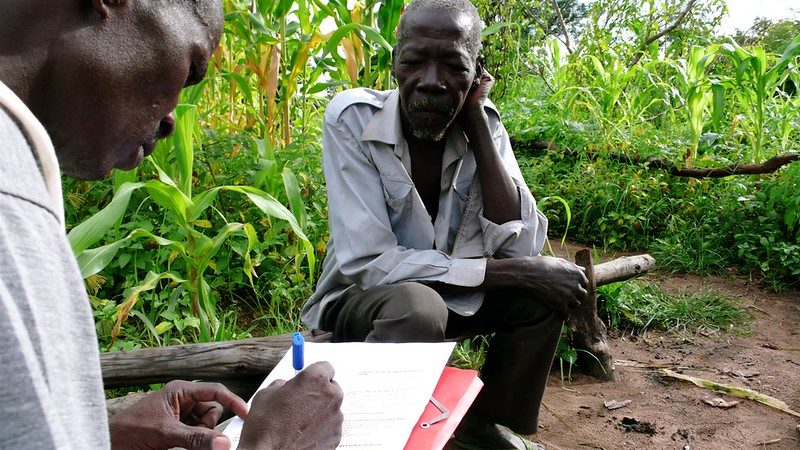Witchcraft in the Central African Republic
 In the Central African Republic (CAR), up to 50% of prosecutions are for allegations of witchcraft, based on a law which, of course, can not be proven and therefore not challenged. This law targets the most vulnerable of the population- impoverished women, children and the elderly. With an ongoing civil war, the legislation’s role in shaping society and power is instrumental in identifying how culture, tradition, government and conflict work to create an impoverished society.
In the Central African Republic (CAR), up to 50% of prosecutions are for allegations of witchcraft, based on a law which, of course, can not be proven and therefore not challenged. This law targets the most vulnerable of the population- impoverished women, children and the elderly. With an ongoing civil war, the legislation’s role in shaping society and power is instrumental in identifying how culture, tradition, government and conflict work to create an impoverished society.
However, with greater international awareness being brought to the issue in recent years, many organizations are doing their part to help. Here is everything you need to know about witchcraft in the Central African Republic.
The CAR Is in the Midst of a Brutal Civil War
Since its inception in 1960, the CAR has suffered from decades of instability and violence. In 2020, the Patriots for Change (CPC) was formed to disrupt the 2020-2021 CAR election. Most recently, the CPC renewed its attacks on the government in early 2023, equipped with better weaponry. As the CAR delves deeper into intraregional conflict, the humanitarian crisis worsens, contributing to poverty and poor living conditions.
Witchcraft and Vulnerable Groups
In the CAR, the law specifies that suspected witchcraft in and of itself is not a crime but rather its “harmful use.” This applies explicitly to accusations of witchcraft, which refer to intentions to do harm to people, damage property and disrupt the public.
Accusations of witchcraft are intrinsically tied to social marginalization and contribute to the filtering out of unwanted people, most especially elderly women. Most of the people who are accused of witchcraft are around the age of 55, with an increased emphasis on isolated women who may be divorced, widowed, childless or otherwise alone. From January 2020 to June 2021, almost 60% of the defendants held in the women’s remand prison in Bangui could be classified into one of these categories.
The CAR’s Rule of Law Is Difficult To Enforce
Prosecutions are almost entirely sourced from the confessions of the accused. Accused people who refuse to confess face an increased risk of vigilante justice and mob violence. At the same time, within the judicial system, refusing to confess may be the only way to avoid conviction. Cases of witchcraft are considered carefully due to their sensitive nature, which causes judges to search for a conviction by whatever means necessary. Accusations of witchcraft are significantly more common in rural areas where law enforcement and the judicial system have limited power.
Communities Rely on Support From Local NGOs
Caritas CAR is one such NGO providing services since CAR’s inception in 1960. Among its primary goals of alleviating the pressures of poverty in the CAR, Caritas CAR also focuses on building a stronger society. Most accusations of witchcraft come from somebody the accused knows and by providing social resources, Centralis CAR targets this problem at its root.
The CAR still has a long way to go with some of the highest rates of remand detention in the world, unparalleled conflict and levels of poverty and a targeted system of persecution of the most vulnerable people in society. However, the CAR and its people continue to work toward a better, more connected society through NGOs like Caritas CAR.
– Anjum Alam
Photo: Flickr
